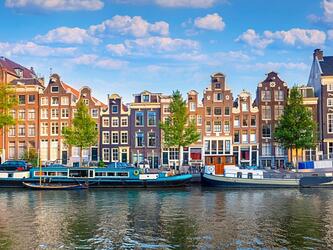Pessimism pervades western Europe
In every country surveyed, more people agreed with the statement ‘our government does not prioritise the concerns of people like me’ than disagreed with it and across the vast majority of western Europe more people disagreed than agreed with the statement, ‘I have a high level of trust in business in general’.
For instance only 31% of Britons trust business and only 24% trust business leaders to tell the truth.
While these findings fitted with one of Ipsos’s trends – crisis of the elites – its study as a whole identified eight trends.
Based on 8,000 interviews across 23 countries, the key trends were: Crisis of the Elites; Generation Strains; the Search for Simplicity and Control; Uncertainty is the New Normal; the Rise and Rise of Tradition; The Optimism Divide; The Battle for Attention and A Healthier World.
The perceived merits of globalisation vary. Overall 55% of respondents think globalisation is good for their country but the clearest division is between those in developing economies (who generally view globalisation positively) and those in mature economies (who are more pessimistic).
However one of the most telling trends is generation strain, with the younger generation in western Europe feeling they are – and will be – less well off than their parents’ generation.
For instance in the UK only one in 10 ( 11%) think our childrens’ chances of owning their own home will be better than their parents’ generation – which puts the UK at the very bottom of the table globally. Only 19% think we will be able to live comfortably when we retire from work and 14% think we are more likely to have a secure job.
The emerging markets are more optimistic about the future of young people, believing they will have a better life than their parents.
Ben Page, CEO, Ipsos MORI, said: "What this latest Global Trends survey should remind us is that despite increasing longevity, rising incomes in emerging markets, more connectivity, computing power and storage than we could ever have imagined, the human condition is one of anxiety and striving for more.
"There is a growing gulf between the generations in terms of opportunities, there is a sense of pessimism about the future in western Europe and there are increasing demands on our time leading to a battle for attention. Understanding the manifestations of that seems ever more vital for business and politicians.
"Britain’s are the most pessimistic country in the world when it comes to the future of our healthcare – less than one in ten ( 8%) think we will see the quality of healthcare in Britain improve in the coming years. We are also the least likely to think our chances of owning our own homes is better than our parents and our trust in business is at rock bottom. The good news is that we continue to demonstrate that on a whole we are a liberal and progressive country."

We hope you enjoyed this article.
Research Live is published by MRS.
The Market Research Society (MRS) exists to promote and protect the research sector, showcasing how research delivers impact for businesses and government.
Members of MRS enjoy many benefits including tailoured policy guidance, discounts on training and conferences, and access to member-only content.
For example, there's an archive of winning case studies from over a decade of MRS Awards.
Find out more about the benefits of joining MRS here.














0 Comments